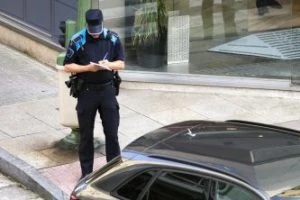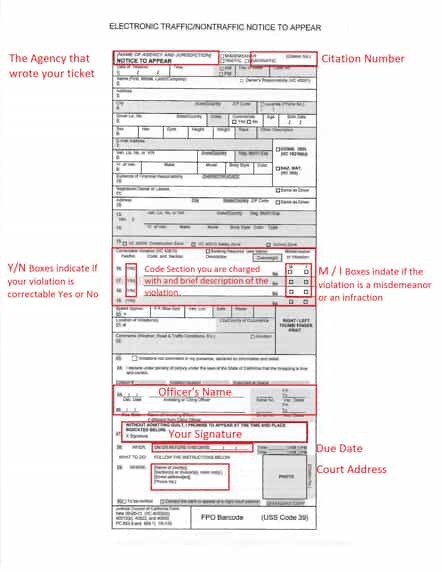Who can I contact for motoring offences?
If you’ve been caught speeding, parked illegally, or committed another motoring offence, you may be wondering who to contact to resolve the issue or contest the penalty. Whether you’re a driver, rider, or vehicle owner, it’s essential to know who to turn to for guidance and support. From the police and local authorities to government agencies and motoring organisations, there are various bodies involved in enforcing and regulating motoring laws. In this article, we’ll outline who to contact for different types of motoring offences, helping you navigate the process with confidence.
Who to Contact for Motoring Offences
If you have committed a motoring offence, it is essential to know who to contact to resolve the issue. In the UK, there are various authorities and organizations that deal with different types of motoring offences. Here are some of the key contacts you may need:
Police Forces
The police are responsible for enforcing traffic laws and dealing with most motoring offences. If you have been stopped by the police for a motoring offence, you can contact the relevant police force to report the incident or to obtain more information. You can find the contact details of your local police force on the UK Police website.
Driver and Vehicle Licensing Agency (DVLA)
The DVLA is responsible for maintaining a database of drivers and vehicles in the UK. If you have been issued with a fixed penalty notice or a summons for a motoring offence, you may need to contact the DVLA to update your driving licence or vehicle registration details. You can contact the DVLA by phone on 0300 790 6801 or by post at DVLA, Swansea, SA99 1AR.
Motoring Courts
If you have been issued with a summons for a motoring offence, you will need to contact the relevant motoring court to arrange a hearing or to plead guilty by post. You can find the contact details of your local motoring court on the GOV.UK website.
Motoring Solicitors
If you have been charged with a serious motoring offence, such as dangerous driving or drink-driving, you may want to contact a motoring solicitor for legal advice and representation. Motoring solicitors specialize in traffic law and can help you to prepare your defence and represent you in court.
Independent Appeals Service
If you have been issued with a fixed penalty notice or a summons for a motoring offence and you believe it was incorrect, you can contact the Independent Appeals Service to appeal the decision. The Independent Appeals Service is an independent body that reviews appeals against motoring offence penalties.
| Contact | Phone Number | Post Address | Email Address |
|---|---|---|---|
| Police Forces | Varying numbers | Varying addresses | Varying email addresses |
| DVLA | 0300 790 6801 | DVLA, Swansea, SA99 1AR | [enquiries@dvla.gov.uk](mailto:enquiries@dvla.gov.uk) |
| Motoring Courts | Varying numbers | Varying addresses | Varying email addresses |
| Motoring Solicitors | Varying numbers | Varying addresses | Varying email addresses |
| Independent Appeals Service | 0300 123 1020 | Independent Appeals Service, PO Box 10595, Nottingham, NG1 9JR | [ias@justice.gov.uk](mailto:ias@justice.gov.uk) |
Do unpaid traffic tickets ever go away in California?

Unpaid traffic tickets in California do not simply go away and can lead to serious consequences if left unresolved.
What Happens if You Don’t Pay a Traffic Ticket in California?
If you fail to pay a traffic ticket in California, you can expect the following consequences:
- The court will send you a reminder notice with additional fees.
- The ticket will be sent to a collections agency, which can negatively impact your credit score.
- The DMV will place a hold on your driver’s license, making it impossible to renew it until the ticket is paid.
How Long Do You Have to Pay a Traffic Ticket in California?
In California, you typically have 30-60 days to pay a traffic ticket or appear in court to contest it. If you fail to respond within this timeframe, the court may:
- Issue a warrant for your arrest, which can lead to fines and even jail time.
- Impose additional penalties, such as increased fines or points on your license.
- Suspend your driver’s license, making it illegal to drive.
Can You Settle an Unpaid Traffic Ticket in California?
In some cases, it may be possible to settle an unpaid traffic ticket in California through a process called traffic amnesty. This program allows individuals with unpaid tickets to:
- Pay a reduced fine or have the fine waived entirely.
- Avoid having their license suspended or revoked.
- Clear their driving record of the outstanding ticket.
How do I report something to the CHP?

The California Highway Patrol (CHP) provides several ways to report incidents, crimes, or concerns to their agency. If you need to report something to the CHP, here are the steps to follow:
Reporting Online
The CHP has an online reporting system that allows you to submit reports for certain incidents. This system is available 24/7 and can be accessed through the CHP’s website. To report online, follow these steps:
- Go to the CHP’s website ([www.chp.ca.gov](http://www.chp.ca.gov)) and click on the Report a Crime tab.
- Fill out the online report form, providing as much detail as possible about the incident.
- Submit the report and wait for a confirmation email.
Reporting by Phone
If you prefer to speak with a live person or need to report an emergency, you can call the CHP’s emergency dispatch center. Here’s how:
- Dial the CHP’s emergency number, 9-1-1, or the non-emergency number, (800) 835-5247.
- Provide the dispatcher with as much information as possible about the incident, including the location, date, and time.
- Follow the dispatcher’s instructions and wait for an officer to respond.
Reporting in Person
If you prefer to report an incident in person, you can visit your local CHP office. Here’s how:
- Find your local CHP office by visiting the CHP’s website and using the Office Locator tool.
- Go to the office during business hours and speak with a CHP officer or dispatcher.
- Provide as much detail as possible about the incident, and the officer will assist you with filing a report.
How to look up traffic tickets in California?

To look up traffic tickets in California, you can follow these steps:
The California court system provides an online portal to search and access traffic ticket information. Here’s how to do it:
1. Visit the California Courts Online Self-Help Center website at [www.courts.ca.gov](http://www.courts.ca.gov).
2. Click on the Traffic tab at the top of the page.
3. Select the county where you received the ticket from the drop-down menu.
4. Enter your ticket number or your driver’s license number to search for your ticket information.
5. Review the search results to find your ticket and view the details, including the fine amount, due date, and court appearance information.
Ways to Look Up Traffic Tickets in California
You can look up traffic tickets in California through various methods, including:
- Online Search: Use the California Courts Online Self-Help Center website to search for your ticket by ticket number or driver’s license number.
- Phone: Contact the court where you received the ticket to request information over the phone.
- In-Person: Visit the court where you received the ticket to lookup the information in person.
What to Do If You Can’t Find Your Ticket
If you’re unable to find your traffic ticket information online, you may need to:
- Contact the court where you received the ticket to verify if they have received the ticket from the law enforcement agency.
- Check with the law enforcement agency that issued the ticket to see if they have a record of the ticket.
- Wait a few days and try searching again, as it may take some time for the ticket information to be updated in the system.
Consequences of Not Paying a Traffic Ticket in California
If you fail to pay a traffic ticket in California, you may face:
- A fine increase: The court may add additional fees and penalties to the original fine amount.
- Driver’s license suspension: The California Department of Motor Vehicles (DMV) may suspend your driver’s license.
- Warrant issuance: A warrant may be issued for your arrest if you fail to appear in court or pay the fine.
Does California have ticket forgiveness?
California does have a traffic ticket forgiveness program, also known as the traffic amnesty program. This program allows eligible drivers to have their traffic fines reduced or dismissed under certain circumstances.
Eligibility for the California Traffic Amnesty Program
To be eligible for the California traffic amnesty program, drivers must meet specific criteria. This includes:
- Holding a valid California driver’s license
- Not having any outstanding misdemeanor or felony warrants
- Not having any prior amnesty program participation within the past 36 months
Benefits of the California Traffic Amnesty Program
The California traffic amnesty program offers several benefits to eligible drivers, including:
- Reduced fines: Participating drivers may have their fines reduced by 50% or 80%, depending on their income level
- Dismissal of eligible citations: Participating drivers may have eligible citations dismissed, removing points from their driving record
- Improved driving record: By reducing or dismissing citations, drivers can improve their overall driving record and avoid increased insurance rates
How to Participate in the California Traffic Amnesty Program
To participate in the California traffic amnesty program, drivers must:
- Check eligibility online or by contacting their local court
- Complete the amnesty program application and provide required documentation
- Pay the reduced fine amount or set up a payment plan
More Information
Who do I contact if I receive a fixed penalty notice?
If you receive a fixed penalty notice, you should contact the police force that issued the notice. The contact details will be provided on the notice itself. You can reach out to them to inquire about the notice, make a payment, or to appeal against the penalty. It’s essential to note that you should respond to the notice within the specified timeframe, usually 28 days, to avoid further action being taken.
What if I want to contest a motoring offence allegation?
If you want to contest a motoring offence allegation, you should contact the police force that issued the allegation or the court that is handling the case. You can do this in writing, by post or email, or in person at the police station or courthouse. You will need to provide your name, address, and driving licence number, as well as details of the alleged offence and the reasons why you are contesting it. It’s recommended that you seek legal advice before proceeding, as the process can be complex and time-consuming.
Can I contact the DVLA for motoring offences?
The DVLA (Driver and Vehicle Licensing Agency) is responsible for maintaining a record of driving licences and endorsements, but it’s not the primary contact for motoring offences. While you can contact the DVLA to check your licence details or to notify them of a change of address, they will not be able to provide information or advice on specific motoring offences. For queries related to offences, you should contact the police force or court that is handling the case.
What if I need to contact my local council about a parking fine?
If you need to contact your local council about a parking fine, you should reach out to their parking enforcement team. You can find their contact details on the parking fine notice or on the council’s website. The team will be able to assist you with queries about the fine, such as making a payment or appealing against the fine. They may also be able to provide information on the parking restrictions in place in your area and how to avoid future fines.











